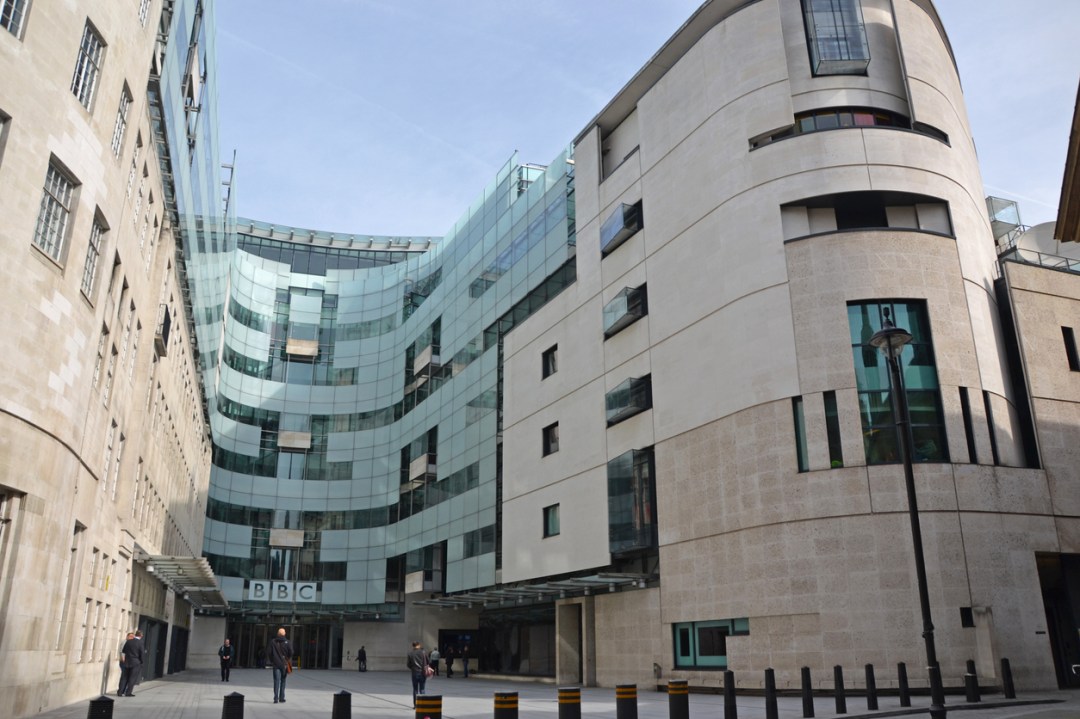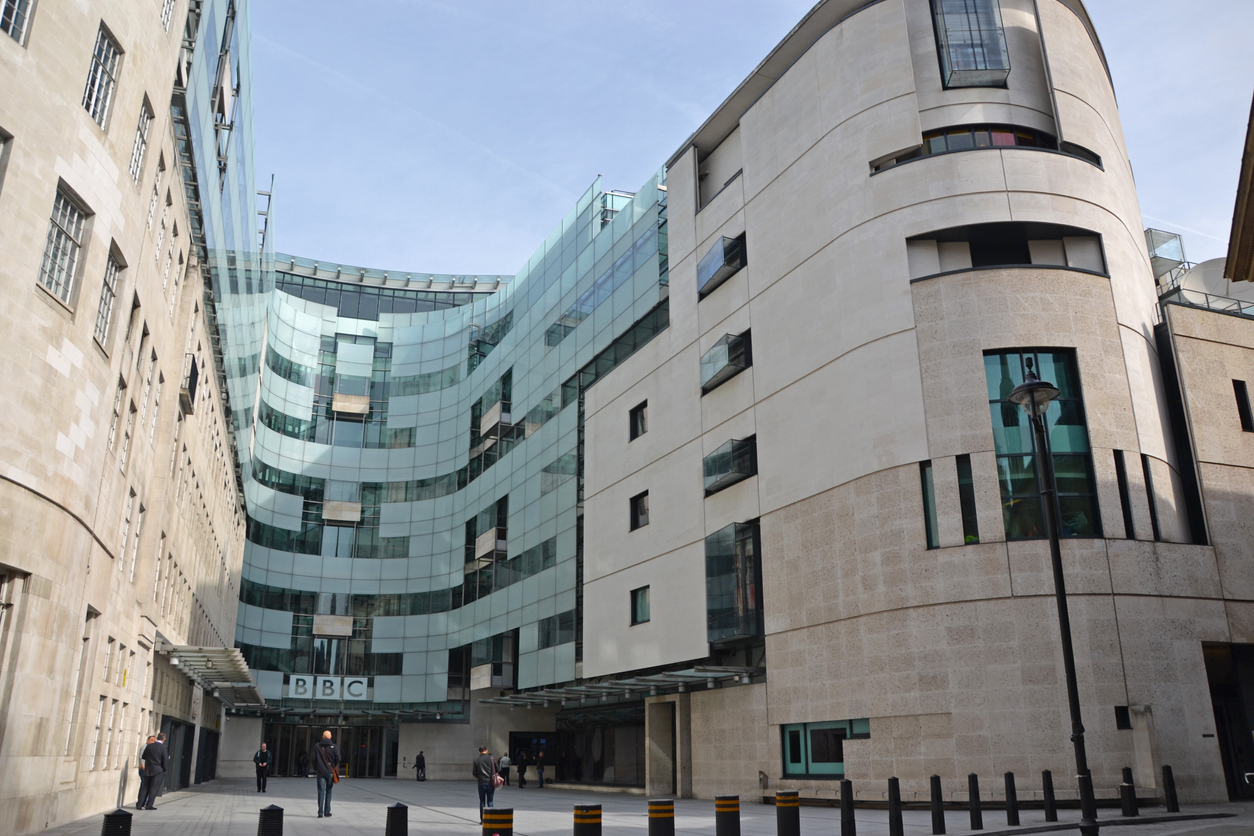For the first time, there are signs that a Tory government is freeing itself of its Stockholm Syndrome attitude towards the BBC. There have been suggestions it will de-criminalise non-payment of the BBC license fee this autumn, and there are signals that Number 10 is finally seeing the Corporation as what it has become: an enemy of conservatism and a champion of a vapid potpourri of fashionable nonsense.
It’s beginning to look like out there in viewer-land, support for the licence fee is ebbing fast
In response, it is clear the Corporation is mounting its own defence and once again calling on its friends in high places to take up arms and man the defences on its behalf. The liberal establishment is on high alert because it sees the barbarians at the gate and it fears, this time, the walls may be breached.
A slim volume of essays published this month, called The BBC: A Winter of Discontent?, characterises the kind of attacks what I call the ‘friends of the BBC’ will make in the coming months. Although the book does contain the views of some BBC critics, such as Rod Liddle and me (no payments of any kind were offered to any of the writers), most of the contributors are militantly pro-BBC.
One former BBC correspondent writes that ‘There are thugs at the door who would like to see “Auntie” both bloody and bowed – or more subtly deconstructed and disappeared’. A UK professor suggests that ‘The apparent hostility of this “administration” towards the BBC is too inchoate, puerile, maleficent and reckless to be worthy of rebuttal’.
Throughout the book, the predominant tone is one of hurt, outrage (how dare you impugn the BBC?) and, most tellingly perhaps, alarm.
The question inevitably arises: how alarmed should they be? After all, even if the government decriminalised the licence-fee, refuseniks would still be open to civil action by the BBC – hardly making decriminalisation an existential threat to the BBC’s finances, you might think. But the ‘Friends of the BBC’ see it as a harbinger of something that really could be existentially threatening: the abolition of the licence fee altogether. And that is a real possibility, as public dissatisfaction with the tax grows. More and more people are seeing the licence fee as a hangover from the age of monopoly broadcasting (the BBC originally had no competitors) which has lived on into an age where there is overwhelming choice.
A couple of days ago, a poll commissioned by the campaigning group ‘Defund The BBC’ showed 59 per cent of people want the licence-fee to change, with only 32 per cent in favour of the status quo. A closer look at the poll findings – it had an unusually large sample of 2,274 – showed interesting, if predictable, differences. Lib Dem voters were the most enthusiastic for the status quo (39 per cent), Brexit Party voters the least (12 per cent). But what really stands out from this poll is the jaundiced view the British public has of the BBC. Asked if they felt the Corporation ‘fairly reflects British values’ 43 per cent said either ‘not much’ or ‘not at all’. When you think about it, that really should give the British Broadcasting Corporation pause for thought.
Allies of the BBC will doubtless question the accuracy of all this; ‘look’ they will say, ‘who commissioned this?’ I would advise caution on their part. Last Christmas, a poll commissioned by the Today programme – guest-edited by Charles Moore – showed 74 per cent of people want the licence fee abolished. It’s beginning to look as though out there in viewer-land, support for the licence fee is ebbing fast.
The licence fee is the central question. One of the bright ideas to replace it among the Friends of the BBC is something they call a ‘household charge’. This would be levied on every household – whether or not they owned a TV or watched the BBC. It would in fact, be even less fair than the current system, which at least exempts those without TV sets. I cannot see this recommending itself to any government in its right mind.
But what I can imagine is a Tory offer in its 2024 manifesto, pledging to scrap the licence fee and move the BBC on to a subscription basis. This tax cut would be enormously popular, especially with the demographic that uses the BBC’s services least and which is – handily – exactly the one that the Tories will be most keen to keep on board: Red Wall voters in the north. You can see just how tempting such an offer might look in a few years’ time as it would represent an actual tax cut that people would notice.
The people who would be least enthusiastic would, of course, be the BBC’s many friends, which comprises the massed ranks of the professoriat, well paid public sector professionals and all those who think of themselves as enlightened liberals – pretty much the entire Remain voting demographic in fact. They would be scandalised, and they are also people who will not give up the fight easily. They are used to being listened to, used to getting their way and they have powerful allies in all parties including the Tories. The likes of Chris Patten, Ken Clarke and many other big guns on the Tory left will pitch in with solemn warnings about cultural vandalism and the destruction of a priceless national asset.
Scrapping the licence fee – a move that would greatly diminish the BBC – is not a done deal. The tentative reform programme that the new Director general, Tim Davie, has begun to adumbrate is surely the BBC’s best line of defence. But time is short and making reform a reality will be massively difficult. It will require a steely determination on Davie’s part. We are at standing on the edge of what is going to be a central battleground in the next instalment of our culture war. When hostilities begin, stand by as the BBC’s Establishment warriors go into battle.







Comments